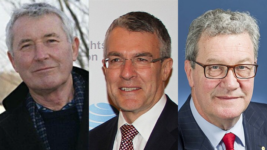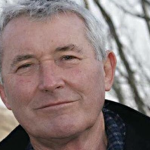Bipartisan Coverup of Timor-Leste Bugging Continues, as Dreyfus Pursues Court Suppressions

ACT Chief Justice Lucy McCallum sums up the Attorney General’s Department’s push to prevent the release of the full 6 October 2021 court transcript regarding an appeal of court secrecy measures raised by ACT barrister Bernard Collaery down to “a tension between transparency and secrecy”.
The capital territory’s top judge made the remarks during a 23 September ACT Court of Appeal hearing, in which current Labor attorney general Mark Dreyfus has picked up the mantel of former Liberal AG Michaelia Cash in having the court’s decision withheld from the public.
Collaery was being prosecuted over five charges of conspiracy to release classified Australian Security Intelligence Service information, which Cash’s predecessor Christian Porter had determined to pursue and applied never-before-used national security suppression orders to the case.
The information that the lawyer and his client Witness K were charged with exposing related to the open secret that the Howard government illegally bugged the cabinet offices of the newly independent nation of Timor-Leste to gain an upper hand in oil and gas treaty negotiations.
Dreyfus determined to drop the Collaery prosecution on 7 July, as was the want of a large section of the constituency. However, his department continues to actively work towards the suppression of the 2004 government crimes, citing national security.
A whole-of-government coverup
The case transcript the Albanese and Morrison governments have sought to bury is 2021’s Collaery versus The Queen (No 2). The judgement summary explains that a three justice bench of the ACT appeals court ruled that six identified matters in the Collaery prosecution should not be secreted.
This was a significant victory for the barrister, whom the government had been pursuing since mid-2018, after Porter gave the go-ahead to the Commonwealth Director of Public Prosecutions to lay five charges against him under section 39 of the Intelligence Services Act 2001 (ACT).
As AAP reported, Chief Justice McCallum last Friday told the AG’s senior counsel Perry Herzfeld that the government asserts “national security trumps transparency but there’s a pretty strong argument the other way”, adding that “ultimately, the administration of justice must be transparent”.
The full transcript of the decision has never been published. Cash requested former ACT Chief Justice Helen Murrell to release it only with heaving redaction, to which the judicial officer declined. The AG then sought special leave to appeal this decision to the High Court, which was ultimately dropped.
But Dreyfus’ decision to pursue the suppression of the entire proceedings in the ACT appeals court shows the Albanese government is in league with the opposition in hiding the crimes of the Howard government, regardless of Labor not being a party to it and it being against the want of Timor-Leste.
Public knowledge
Witness K was the senior ASIS officer charged with overseeing the installing of listening devices in the Timor-Leste cabinet offices in 2004, when the world’s newest nation was also one of its most impoverished.
This was to provide the Howard government with an advantage in Timor Gap oil and gas negotiations that resulted in the 2006 Certain Maritime Arrangements in the Timor Sea (CMATS) treaty, which was terminated by Timor-Leste in 2017, due to Australia’s corrupt approach to it.
When these negotiations were occurring, our foreign minister was Alexander Downer. For this nation’s part, the treaty outcome favoured a number of resource companies, including Australia’s Woodside, whom Downer took up a consultancy position with for a period post-parliament.
In 2008, Witness K went to the Inspector General of Intelligence and Security about an employment dispute, and he was advised to consult with ASIS-approved lawyer Collaery about the matter, which included the details of the surveillance operation in Timor-Leste.
Former ACT attorney general Collaery was a long-term supporter of the cause of the East Timorese independence movement. And he determined that the bugging operation was illegal under a local law that holds beyond territorial limits, specifically section 334 of the Criminal Code Act 2002 (ACT).
From there, Collaery was to represent Timor-Leste against Australia at the Permanent Court of Arbitration in the Hague in 2013, with Witness K to testify about the bugging, when ASIO raided K’s Canberra home and Collaery’s office, where they seized documents relating to the Timor-Leste case.
Politely burying the truth
Long-term Collaery supporters Kathryn Kelly and Sister Susan Connelly wrote to AG Dreyfus on 15 July congratulating him on his dropping the Collaery prosecution, and adding that a pardon for Witness K, who ended up pleading guilty and receiving a suspended sentence in June 2021, was due.
“One issue of serious concern to us relating to the Collaery case, is that proper safekeeping must occur for all the documents in this case, both court and administrative,” the co-convenors of the Alliance Against Political Prosecutions further advised Dreyfus
“This is important in the event that an ICAC investigation into the whole bugging operation takes place in the future.”
In his 8 August reply, Dreyfus states that Witness K’s matter is simply done with. And as for the Collaery documentation, he outlined this sensitive information is protected from disclosure under the National Security Information (Criminal and Civil Proceedings) Act 2004 (Cth).
“The courts have long recognised that in public interest immunity cases it is reasonable to provide the court with court-only evidence where the disclosure to the other party would result in the very harm which the public interest immunity is required to protect,” added the AG.
So, despite having introduced his National Anti-Corruption Commission Bill 2022 on Wednesday, the current attorney general seems determined that the Howard government corruption relating to the illegal undercutting of a poor neighbouring country won’t be the subject of an inquiry.
Indeed, in his reply to Kelly and Connelly, Dreyfus sounds very much like an attorney general representing the Morrison administration.
And as for whether the full transcript of Collaery’s successful challenge to the secrecy measures that were shrouding his case will ever be released to the public in full, Chief Justice McCallum is currently deliberating upon that matter.
As part of the 8th of October International Day of Action for Assange, the Alliance Against Political Prosecutions and other Canberra supporters of the WikiLeaks founder will be holding a demonstration in front of the British High Commission on Commonwealth Avenue in the capital at 11 am.
At 10.30 am on the same date, Assange supporters will be meeting at Melbourne’s Birrarung Marr Park to form a human chain. An event led by John Shipton, Gabriel Shipton and David McBride.
While in London on 8 October, supporters of the WikiLeaks founder will be conducting a similar human chain event, which will encircle the Houses of Parliament.
In response to an AAPP query about Assange, attorney general Mark Dreyfus said, “The Australian government has expressed the view that Mr Assange’s case has dragged on for too long and that it should be brought to a close. Although the government cannot intervene in the legal matters of another country.”
A weak response at best.







